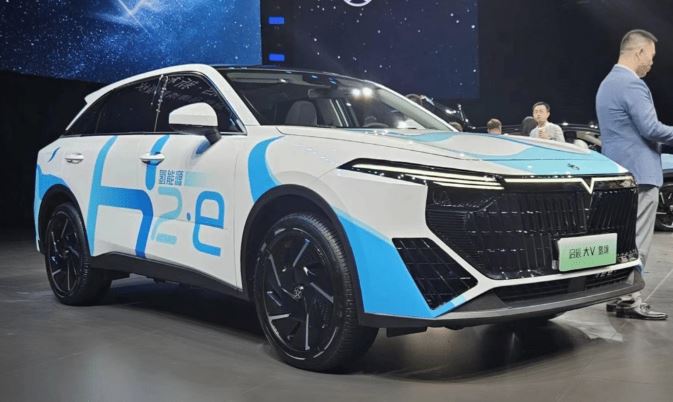Dongfeng-Nissan’s Venucia Introduces Hydrogen-Powered SUV
Venucia, a joint venture between Dongfeng-Nissan, unveiled a hydrogen-powered version of its SUV, the V-Online, priced at 998,800 yuan (about $137,000 USD). This fuel cell electric car utilizes BYD’s lithium-iron-phosphate (LFP) battery.
However, this vehicle won’t be immediately accessible to the general public. It will first be featured in a hydrogen vehicle demonstration in one of Guangzhou’s primary districts. The Sino-Japanese car brand has plans to gradually release the car for individual buyers.
The hydrogen-powered SUV is equipped with a 60 kW fuel cell that drives a 160 kW motor. The V-Online also integrates an LFP battery pack from BYD’s battery division, FinDream. This SUV can cover a distance of 500 kilometers on a single refueling, taking just 5 minutes to complete. A kilogram of hydrogen in the vehicle can provide a range of 120 kilometers. The car can operate within a temperature range from -40 to 60 degrees Celsius and features a 70 MPa storage tank.
Dongfeng has prior experience with hydrogen-powered vehicles. In 2020, they introduced the Qingzhou E-H2, which was based on the Chinese manufacturer’s Aeolus AX7. Similar to the V-Online, the Qingzhou is primarily intended for commercial use and has been part of hydrogen vehicle demonstrations. The FCEV uses an 80 kW fuel cell and can cover 500 kilometers on a 3-minute refueling, consuming 0.751 kg of hydrogen per 100 kilometers.
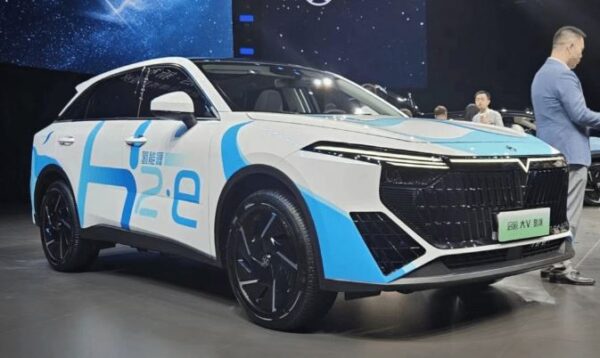
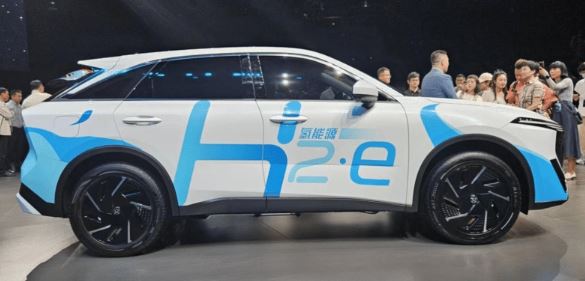
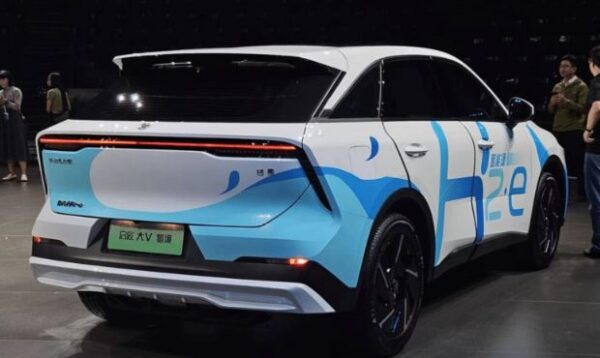
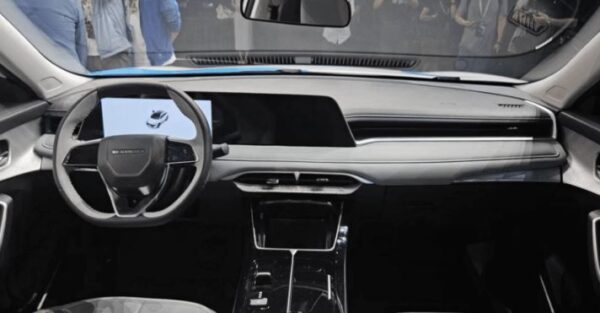
In the first nine months of this year, Chinese fuel cell vehicle manufacturers manufactured and sold approximately 3,000 vehicles, representing a 25.2% increase in production and a 37.3% increase in sales compared to the previous year. In September, about 100 units were sold, and all of them were intended for commercial use.
Dongfeng is not the only player in the Chinese hydrogen-powered car market. Other manufacturers such as GAC Aion, Changan, and SAIC Maxus have also introduced hydrogen-powered models like the Aion LX’s fuel cell version, a hydrogen-powered variant of the SL03, and the MPV Euniq 7 with a fuel-cell powertrain offered by SAIC Maxus.

